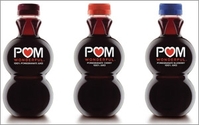
The Supreme
Court has
ruled that Pom Wonderful may sue the Coca-Cola Company for false advertising, although the labeling of the
Coca-Cola product in question has Food and Drug Administration approval, based on the labeling requirements of the Food, Drug and Cosmetic Act (FDCA).
The decision is expected to
have significant implications for the food and beverage industry.
David L. Ter Molen, a Chicago lawyer who writes the Food Identity
Blog, said that the decision flips conventional wisdom about food labeling "on its head.” Up to now, companies have "thought they were on totally safe ground” if their labels met FDA
approval under the FDCA, Ter Molen told The
Washington Post.
advertisement
advertisement
Pom sued more than five years ago over Coca-Cola's labeling and advertising of Minute Maid Pomegranate Blueberry Flavored Blend of Five Juices, asserting
that it violates the Lanham Act. The Lanham Act prohibits false advertising, as well as trademark infringement, and is enforced through private lawsuits.
The Minute Maid beverage
contains just 0.5% of pomegranate and blueberry juices (combined), with 99% of the beverage consisting of apple and grape juices, which are significantly less expensive. Pom's pomegranate-blueberry
juice, in contrast, contains 85% pomegranate juice and 15% blueberry juice.
Lower courts agreed with Coca-Cola's argument that the FDA's regulatory authority over food and
beverages labeling overrides and precludes challenges under the Lanham Act.
But eight Supreme Court justices (Justice Stephen Breyer recused himself) unanimously overturned
the lower courts' rulings.
In writing the decision for the court, Justice Anthony M. Kennedy wrote that the FDCA and the Lanham Act have different purposes -- one protects the
public's health and safety; the other prohibits unfair competitive practices -- and that the two complement one another, resulting in enhanced protection for both consumers and competitive
businesses.
The opinion did not address the validity of Pom's charges against Coca-Cola -- just whether Pom could pursue its lawsuit.
However, Justice
Kennedy's decision noted the "miniscule amount" of pomegranate and blueberry juices in the Minute Maid product, and that its label "displays a vignette of blueberries, grapes and raspberries in front
of a halved pomegranate and a halved apple.”
And in summarizing the decision from the bench, Justice Kennedy said that Coca-Cola had taken the position that because it
complied with the FDA's labeling requirements, it could "mislead and trick consumers" without being subject to liability, reported NPR.org.